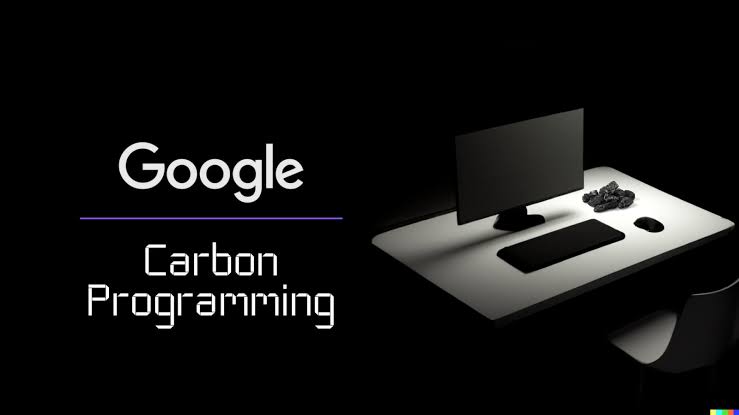Exploring the Carbon Programming Language: Power and Simplicity Combined
 Micheal David
Micheal David
In the ever-evolving landscape of programming languages, a newcomer has been making waves - the Carbon programming language. Carbon's blend of power, simplicity, and versatility has caught the attention of developers worldwide. In this article, we delve into the key features, syntax, and potential use cases of this intriguing language.
Introducing Carbon: A Versatile Tool
Carbon is a general-purpose programming language designed with the modern developer in mind. Its versatility shines through in its ability to handle a wide range of applications - from web development to data analysis and automation scripts. This makes Carbon a go-to choice for programmers who seek a single language to address diverse programming challenges.
Syntax: Clean and Concise
One of Carbon's defining traits is its clean and concise syntax. This design choice emphasizes readability and ease of writing, ensuring that even beginners can quickly grasp the language's fundamentals. The language's syntax is reminiscent of established programming languages, making it accessible to a broad audience of developers.
Strong Typing for Robust Code
Carbon incorporates a strong type system, a feature that enhances code reliability by catching errors at compile-time rather than runtime. This approach saves developers time by reducing the debugging phase and improving overall code quality. Strong typing encourages developers to write cleaner and safer code from the outset.
Embracing the Functional Paradigm
Carbon brings the power of functional programming to the table. This paradigm allows developers to approach problems by defining functions and manipulating data, leading to more modular and maintainable code. Functional programming concepts, such as immutability and higher-order functions, can be seamlessly integrated into Carbon code, making it a flexible and modern language choice.
Concurrency Made Easier
With the growing importance of multicore processors, handling concurrency has become a vital skill for programmers. Carbon addresses this need by providing built-in tools for managing concurrent operations. This allows developers to create efficient and responsive applications that can take full advantage of modern hardware architectures.
Real-World Applications of Carbon
Carbon's adaptability lends itself well to a variety of real-world applications:
- Web Development: Carbon can power dynamic and interactive web applications. Its concise syntax and functional capabilities make it well-suited for frontend and backend development.
function main() {
var greeting = "Hello, Carbon!";
print(greeting);
}
- Data Analysis: With strong typing and functional features, Carbon can handle data processing and analysis tasks efficiently. It's a valuable tool for data scientists and analysts.
function calculateAverage(numbers) {
var total = 0;
for (var num in numbers) {
total += num;
}
return total / numbers.length;
}
- Automation Scripts: Carbon's simplicity and readability make it an excellent choice for writing automation scripts. From system administration to repetitive tasks, Carbon can streamline operations.
function backupFiles(source, destination) {
copyFiles(source, destination);
print("Backup complete!");
}
- Game Development: Concurrency support in Carbon is a boon for game developers dealing with complex logic and interactions. The language's ease of use ensures that intricate game mechanics can be implemented efficiently.
function updateGameLogic() {
// Update game state using concurrent tasks
async {
// Update physics
}
async {
// Update AI
}
// Wait for all tasks to complete
await all();
}
Conclusion
The Carbon programming language has swiftly emerged as a contender in the world of coding, offering a blend of power, simplicity, and adaptability that's hard to overlook. Its clean syntax, strong typing, and functional programming support make it an attractive choice for developers seeking a versatile language for various projects. Whether you're a seasoned programmer or a newcomer to the field, exploring the possibilities of Carbon could open up new avenues for creative and efficient coding.
Subscribe to my newsletter
Read articles from Micheal David directly inside your inbox. Subscribe to the newsletter, and don't miss out.
Written by

Micheal David
Micheal David
I’m a Software & Machine Learning Engineer, I write technical articles and I play chess.